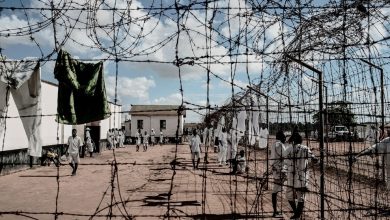Sometimes crime pays
Unless I am grossly misinformed—which I am not—encroachment presupposes that a person occupies or enters another person’s property without their permission. It is also my understanding that such people cannot begin to assert their rights or lay claim to the property on which they have encroached.
But it would be within the power of the owner of the property to seek redress from the offender to assert their rights.
I don’t suppose the encroacher has any justification to demand compensation for material or emotional loss when the owner of the property reclaims it, or have any reasonable expectation of receiving it, even if it is an ex gratia payment.
However, it beggars belief that several public institutions have nurtured and encouraged this nasty habit of compensating encroachers on public land. The latest in the longest line of such public organisations is Blantyre Water Board (BWB), whose troubles with encroachers trace their roots to the anarchy of post-democratic Malawi after 1993.
Sometime after that watershed moment, the country just burst at the seams as people tried to celebrate their new found freedom and assert their supposed rights in manners that were downright chaotic.
The catchment area for the board’s Mudi Dam was some pristine forest that bordered Ndirande Township on one side. And that seemed to be its undoing.
Along the way, some people from the township decided such a land was too good to be left idle, let alone be habited by trees, so they invaded and started cultivating crops on it.
This was during the immediate post-democratic anarchy, so BWB’s plaintive pleas to the people to let go of the land fell on deaf ears.
While the people had their freedom to till as and where they wanted, Mudi Dam was silting, the leached chemicals from the gardens dotted around it pushed BWB’s operational costs through the roof.
But, somewhere along the way, someone decided enough was enough. They told the people to leave the land and, to sweeten the deal, they dangled a carrot in the form of compensation.
Unless its meaning has changed, compensation is supposed to make good for some loss that a person has incurred. The people whom BWB is compensating lost nothing. On the contrary, they made a double gain; land on which they tilled for years and the compensation—both undeserved gains.
It should have been them compensating BWB for its losses.
What will prevent people elsewhere from encroaching on public land knowing they will be compensated?
Perhaps, the public institutions themselves should be faulted for failing to nip such actions in the bud, which gives the people a sense of ownership for the land they have encroached.
During the same period of anarchy, some people encroached on Soche Hill until they laid it bare. When Blantyre City Council and the Department of Forestry tried to evict them, the people, too, demanded compensation. BCC has stood its ground but it has allocated land for them in South Lunzu—which serves the same purpose as compensating the people of Ndirande.
Some people, too, would have wished to grab a piece of the land around Mudi Dam or in Soche Hill but they looked on as anarchists took over; that lawlessness is now being rewarded.
Once again, what’s the name of the fella who said crime does not pay?


